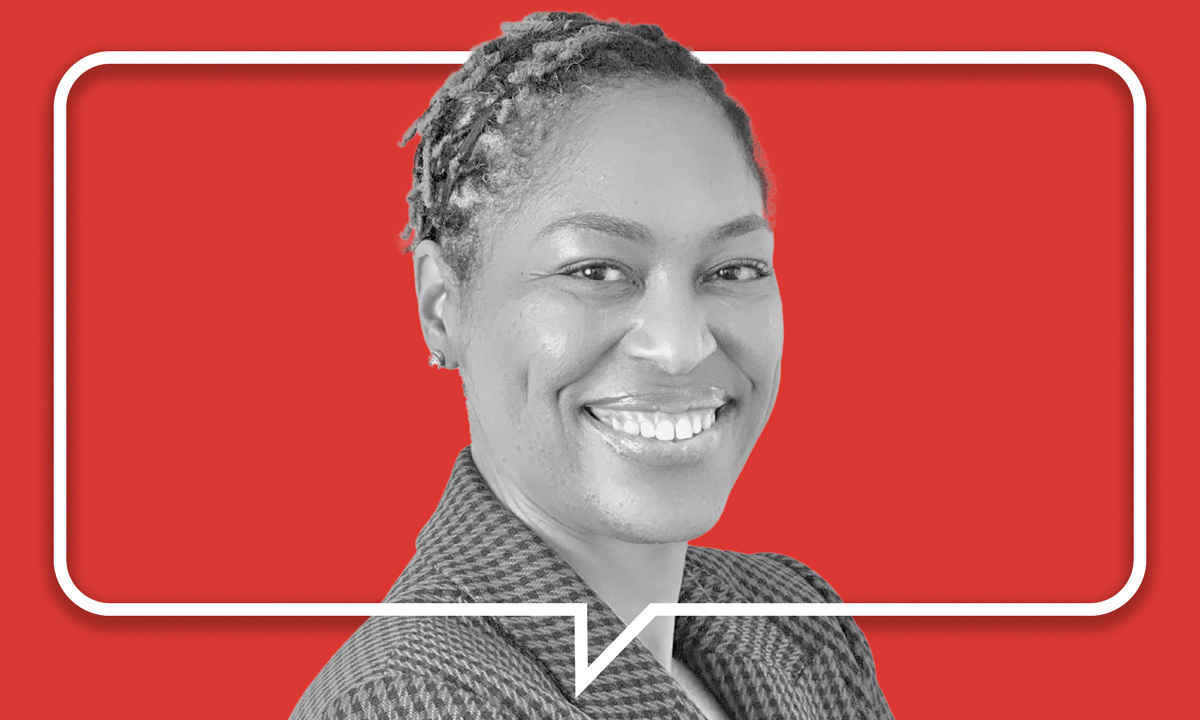Head Start Teacher and Civil Rights Lawyer Turns Her Social Justice Lens to Math
Andrea McChristian, a Yale and Columbia Law School grad, takes on a new role with nonprofit Just Equations, seeing math equity as her next mission.

Get stories like this delivered straight to your inbox. Sign up for The 74 Newsletter
Andrea McChristian, former policy research director at the Southern Poverty Law Center, had to convince those who know her best — including her father — that taking a job at a nonprofit that supports educational equity around math was a logical career move.
After all, her dad said, her true passion is social justice.
McChristian said the explanation was simple: A lack of access and opportunity in mathematics for all students means many children, particularly kids of color and those living in impoverished communities, are forced to take educational pathways that leave them unqualified for lucrative STEM careers.
“The role of math in educational equity is really a civil rights — and a social justice and racial justice — issue,” she recalled telling him.
Broken down that way, friends and family quickly understood why the national policy director role at Just Equations made sense for the Yale University and Columbia Law School graduate.
And, its focus on education conjures an old love: McChristian, who holds a master’s degree in early childhood education from the University of Nevada, was once a member of Teach for America, which recruits college graduates to work in high-need schools for two years. McChristian was a Head Start teacher in the Las Vegas Valley.
But it was an even earlier experience that drew her to the field, she said. Her father, also a Yale grad, worked for IBM and moved his family frequently when McChristian was a child, allowing her to attend schools in several locations, including Japan.
McChristian, who was born in California but lived all over the East Coast, said the constant relocation created a unique opportunity to observe educational inequity firsthand, both here and abroad.
“In Tokyo, I was trying to catch up with students at my expat school,” she said. “And then, a year later, I was in Raleigh, North Carolina, reading a textbook to another student in the 7th grade who didn’t know how to read. So that spurred me to want to understand why there are these disparities.”
This interview has been lightly edited for length and clarity.
What do you see as the purpose of your new position?
There’s a disconnect between the people who live and breathe this work and everyday community members. My entire career has been about breaking down these concepts and these ideas that really impact people’s lives into actionable steps that they can take to change their communities. I’m excited to bring that kind of perspective to the math equity landscape.
What do you see as some of the biggest challenges that we as a nation face in moving kids forward in math?
A lot of times when you just say the word math, people’s minds shut off. They go quickly to, “Oh, I’m not a math person,” or “Math isn’t relevant to me.” They don’t even want to talk about the ideas around why that might be. Maybe they didn’t have access to math coursework that was relevant to their experience, that was culturally responsive. Did they have all the options for the coursework that would get them to the career or the path they wanted to have?
It’s been difficult, but it’s also been invigorating in many ways because it shows me the opportunities for me to add value. I can list why this is a racial and social justice issue. I can show what this means for the average high school student if they don’t have access to math that speaks to them and how that sets them up for their future career.
Historically, what have we been doing wrong in terms of math instruction?
For many, many years, we’ve had this traditional math sequencing without fail, where you go from Algebra I all the way up to calculus — if you’re able to. And that is still an extremely important pathway as calculus is kind of a soft requirement for highly selective colleges.
But we know some students want computer science or data science instead. These kinds of courses may be more relevant to what they want to do in college — and for their future careers.
We’re not saying do away with any certain model. We’re saying, make sure students have as many options as possible in terms of math coursework they need to succeed. It’s about adding more to the plate, giving students more resources.
What would you like to change about how mathematics is taught today?
First is the traditional sequence, the ending point of calculus for those students who want to go into STEM. We need more options there, additional pathways that can include data science and stats.
Then, once we get to the college admissions stage, we want to make sure colleges — including the more highly selective institutions — reflect this change. Because it’s not helpful if a high school can say, “Oh, now our students can take data science to complete their graduation requirement,” but the university those students want to attend does not factor that into the admissions process.
And then, once students get to college, we want to make sure they have access to other coursework — just as they did in high school — that may be more relevant to their experience.
How will the Trump administration’s plans for NAEP impact the information we collect regarding student achievement?
We are a nonpartisan 501(c)(3). But I will say we have been very intentional about the push for the continuation of data. Data such as the Nation’s Report Card provides us with an assessment of where our kids are.
How will the defunding of Head Start impact students’ later achievement in mathematics?
At Just Equations, we focus primarily on the high school to college pathway. But as a former Head Start teacher, I feel very passionately about the work that can be done to support students’ social-emotional, literacy and math needs at the early childhood education level.
Why is it important to solve this issue? To bring more students into mathematics?
For me, it’s informed by my family experience. My dad grew up in South Central Los Angeles and through a program called A Better Chance, he was able to attend a high- performing high school and then go on to Yale University. He had so many opportunities presented to him that he never would if it had not been for this.
My dad always told me, “There’s not a lack of talent, there’s a lack of opportunity.” And so that’s what really fortifies me in this space to ensure that every student, that Black student, that Latinx student, has access to the coursework they need to go into a STEM career.
So that’s why I go back to it being a racial and social justice issue. We can’t afford for people to tune out of the math conversation as we have these new digital technologies emerge, as we see more of our world go online, as we see misinformation and disinformation being used by online technologies to target communities of color.
Disclosure: The Gates Foundation provides financial support to Just Equations and to The 74.
Get stories like these delivered straight to your inbox. Sign up for The 74 Newsletter

;)
